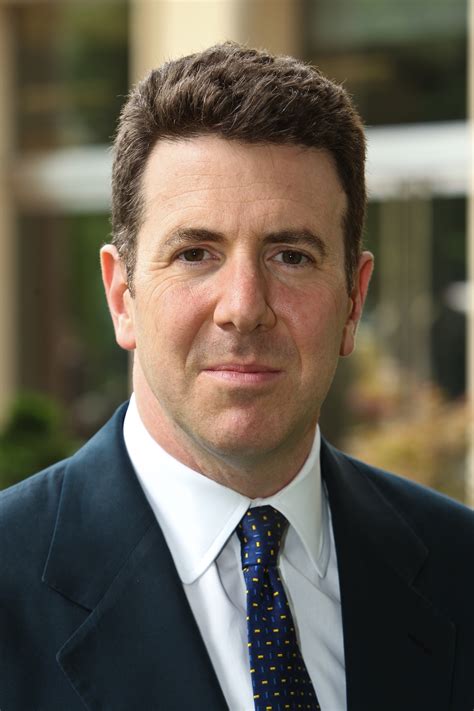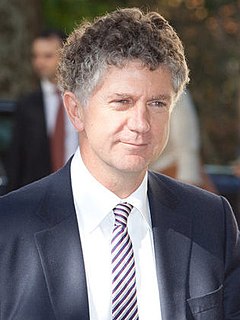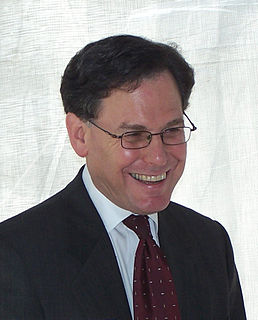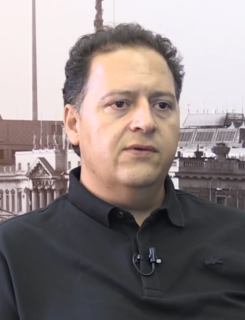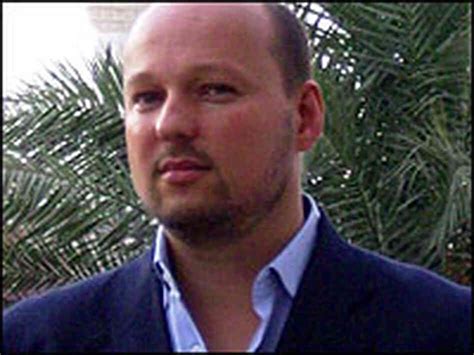Ein Zitat von Daniel Byman
Wir haben einen Wandel erlebt, bei dem die Menschen zunächst oft zögerten, Dinge als Terrorismus zu bezeichnen, bis sie es sicher wussten. Und jetzt gehen sie zunächst davon aus, dass es sich um Terrorismus handelt, arbeiten dann rückwärts und sagen, es könnte Terrorismus gewesen sein oder auch nicht. Und es ist aufgrund der damit verbundenen Ressourcen von enormer Bedeutung. Wenn es sich um ein Verbrechen handelt, das als gestörte Person angesehen wird, wird die örtliche Polizei damit umgehen. Wenn es sich um ein Verbrechen handelt, bei dem jemand als jemand angesehen wird, der mit einer internationalen Terrorgruppe in Verbindung steht, stößt man auf die enorme nationale Sicherheitsbürokratie der USA und enorme politische Aufmerksamkeit.
Themen zitieren
Alle Dinge
nehmen
rückwärts
Aufmerksamkeit weil
die Bürokratie
die Kriminalität
gestört hat .
Hat
der Bund
eine
Gruppe
? Bewältigt
den
Einzelnen
anfangs
international.
Beteiligt
lokalen
Angelegenheit
verbunden ist Vielleicht
könnte
die nationale
nationale Sicherheit
jetzt
oft
draußen sein.
Leute
die
Polizei,
politisch,
widerstrebend.
Ressourcen sagen
,
dass Sicherheit
gesehen
wird
,
dass sich
jemand verändert Bis
große
Brunnen
funktionieren
werden
Verwandte Zitate
Wenn ich sage, dass Terrorismus ein Krieg gegen die Zivilisation ist, stoße ich möglicherweise auf den Einwand, dass Terroristen oft Idealisten seien, die würdige Endziele verfolgen – nationale oder regionale Unabhängigkeit und so weiter. Ich akzeptiere dieses Argument nicht. Ich kann nicht zustimmen, dass ein Terrorist jemals ein Idealist sein kann oder dass die gesuchten Ziele jemals den Terrorismus rechtfertigen können. Die Auswirkungen des Terrorismus sind nicht nur auf einzelne Nationen, sondern auf die gesamte Menschheit von Natur aus böse, notwendigerweise böse und durch und durch böse.
Der Grund dafür, dass Angriffe amerikanischer Terroristen, die keine militanten Dschihadisten sind, manchmal nicht als „Terrorismus“ bezeichnet werden, liegt zum Teil darin, dass Terrorismus in den Vereinigten Staaten ein Verbrechen ist, das in irgendeiner Weise mit einer „ausgewiesenen“ Terroristengruppe in Verbindung gebracht werden muss wie ISIS.
Es ist nicht richtig, auf Terrorismus zu reagieren, indem man andere Menschen terrorisiert. Und außerdem wird es nicht helfen. Dann könnten Sie sagen: „Ja, es terrorisiert die Menschen, aber es lohnt sich, es zu tun, weil es den Terrorismus beenden wird.“ Aber wie viel gesunden Menschenverstand braucht es, um zu wissen, dass man den Terrorismus nicht durch wahlloses Abwerfen von Bomben beenden kann?
Auf den Terrorismus wird aus praktischen Gründen zurückgegriffen, da kein anderes Instrument zur Verfügung steht. Und diejenigen, die den Terrorismus nutzen und anschließend zum Ziel des Terrorismus werden, verstehen seine Macht und wie schwierig es ist, ihm entgegenzuwirken. Nicht nur militärisch. Vor allem aber im Hinblick auf die internationale Wahrnehmung.
Ein Regimewechsel führt zu Chaos. Aus dem Chaos haben Sie immer wieder den Aufstieg des radikalen Islams gesehen. Wir bekommen also diesen Spruch: „Oh mein Gott, sie wollen etwas gegen den Terrorismus unternehmen und sind doch das Problem, weil sie zulassen, dass aus diesem Chaos Terrorismus entsteht.“
Wir sollten das Umfassende Übereinkommen der Vereinten Nationen gegen den internationalen Terrorismus verabschieden. Zumindest wird dadurch klar festgestellt, wen Sie als Terroristen betrachten und wen nicht. Wir müssen den Terrorismus von der Religion entkoppeln – um Terroristen zu isolieren, die diesen Argumentationsaustausch zwischen Terrorismus und Religion nutzen.
Daher haben unsere eigenen Handlungen manchmal unsere Sicherheit bei unseren Bemühungen im Kampf gegen den Terrorismus untergraben. Das kann nur funktionieren, wenn wir uns mit Liberalen, mit gemäßigten muslimischen Kräften, verbünden. Aber wenn unser Krieg gegen den Terrorismus – wie viele Muslime ihn sehen – als ein Krieg gegen den Islam selbst betrachtet wird, ist es für uns sehr schwierig, muslimische Bündnisse zu schließen, weil Amerika und der Westen so giftig geworden sind.
Im Bereich der internationalen Sicherheit und unter Berücksichtigung der Tatsache, dass die Vereinigten Staaten und Russland die größten Atommächte sind: Wir sind bereit, gemeinsam an der Stärkung des Nichtverbreitungsregimes für Massenvernichtungswaffen und ihre Trägersysteme zu arbeiten. Wir sind bereit, beim Problem der Bekämpfung des Terrorismus, des internationalen Terrorismus, viel enger als bisher zusammenzuarbeiten, und hier haben wir sicherlich große Chancen.
Es wäre nicht wünschenswert, „Terrorismus“ zu den internationalen Verbrechen zu zählen, die der Gerichtsbarkeit des Internationalen Strafgerichtshofs unterliegen, wenn dieser so definiert würde, dass er sich nur auf staatsfeindliche Gewalttaten bezieht. Dass Terrorismus nicht als eigenständige Straftat eingestuft wurde, lag daran, dass man sich nicht auf eine ordnungsgemäße Definition einigen konnte.
